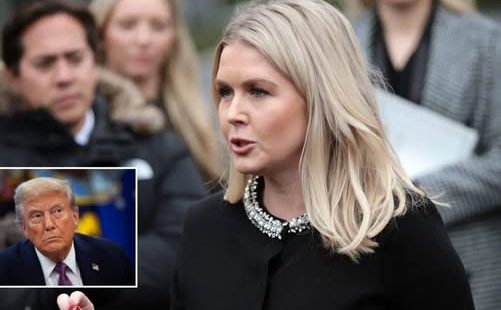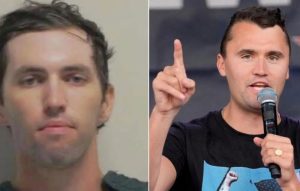Karoline Leavitt Assigned Secret Service Detail After Charlie Kirk Assassination
White House Press Secretary Karoline Leavitt has been placed under the protection of the U.S. Secret Service in recent days, according to multiple reports, marking an extraordinary step that underscores growing concerns over political violence in America.
The assignment comes less than two weeks after the assassination of conservative activist Charlie Kirk, who was fatally shot during a campus event in Utah. His death stunned the political world and renewed fears about the safety of prominent figures in public life.
A Rare Move by the Secret Service
The Secret Service provides around-the-clock protection to the president, vice president, their families, and certain high-ranking officials. Extending that coverage to staff members, however, is rare and typically reserved for exceptional circumstances.
Press secretaries do not normally receive protective details. While Sarah Huckabee Sanders was temporarily guarded in 2018 following a high-profile restaurant incident, such cases remain unusual.
Neither Leavitt nor the Secret Service commented directly on the decision, but insiders told CBS News the move reflects a heightened evaluation of risk.
Leavitt’s Prominent Role
At 27, Karoline Leavitt is the youngest-ever White House press secretary and a former communications aide on Donald Trump’s campaign. Since assuming the role, she has become one of the administration’s most visible defenders, routinely sparring with reporters and amplifying Trump’s message across media platforms.
Her high-profile presence has made her both a rising star among supporters and a target of criticism from opponents. Security analysts note that visibility combined with escalating threats against officials often triggers reviews by the Secret Service.
A Heightened Political Climate
The decision to provide Leavitt with security comes as Congress debates a $58 million funding package to expand protective resources for officials in both the executive and judicial branches. Lawmakers argue the investment is necessary as threats against public servants reach record levels.
Political violence has become a growing concern in recent years. The attack on Rep. Steve Scalise in 2017, the assault on Paul Pelosi in 2022, and multiple high-profile security scares involving federal judges have raised alarms about whether enough protections are in place.
The murder of Charlie Kirk has only intensified those fears.
What We Know About the Kirk Shooting
Authorities say Kirk, 31, was shot once from a distance while speaking under a tent at Utah Valley University. The suspect, Tyler James Robinson, 22, was later arrested after what officials described as a “swift, coordinated manhunt.”
President Trump confirmed the arrest during a live television appearance, telling Fox News:
“I think, with a high degree of certainty, we have him. Somebody very close to him turned him in.”
The president added that he hopes Robinson is found guilty and sentenced to death, calling Kirk “the finest person who didn’t deserve this.”
Suspect’s Profile Emerges
Friends of Robinson described him as increasingly radicalized over the past several years. One former classmate told The Guardian that Robinson grew “more extreme” during high school and often ranted about politics.
Investigators also discovered symbolic engravings tied to a popular video game on the suspect’s weapon. While the reference has been widely circulated, federal authorities have cautioned against overemphasizing it as a motive.
The FBI has said Robinson acted alone, though its investigation into potential affiliations remains ongoing.
Security for High-Profile Figures
Leavitt’s protective detail highlights how officials beyond the traditional circle of principals are being evaluated for risk. In volatile political moments, the Secret Service and other agencies often expand their security umbrella to cover individuals who, while not constitutional officers, are deemed high-profile targets.
“The political environment right now is unlike anything we’ve seen in modern history,” a former Secret Service agent told reporters. “When public figures are thrust into the national spotlight, especially amid tragedy, the security calculus changes.”
Precedent and Implications
Past exceptions for security coverage beyond the president’s immediate circle have included Sanders, Kellyanne Conway, and certain Cabinet-level staffers during periods of elevated threat. Experts say Leavitt’s case fits within that tradition, though it is still striking for a press secretary.
For the administration, the move signals both caution and acknowledgment of a dangerous new era in U.S. politics.
Looking Ahead
A public memorial for Charlie Kirk is scheduled later this month in Arizona, with President Trump, Vice President JD Vance, and other national leaders expected to attend.
For now, the protective detail around Leavitt appears temporary but could be extended depending on ongoing threat assessments. The administration has not commented on how long she will remain under Secret Service watch.
What is clear is that the killing of Charlie Kirk has reshaped the conversation about political safety — not just for elected officials, but also for those who serve alongside them.

James Jenkins is a celebrated Pulitzer Prize-winning author whose work has reshaped the way readers think about social justice and human rights in America. Raised in Atlanta, Georgia, James grew up in a community that instilled in him both resilience and a strong sense of responsibility toward others. After studying political science and creative writing at Howard University, he worked as a journalist covering civil rights issues before dedicating himself fully to fiction. His novels are known for their sharp, empathetic portraits of marginalized communities and for weaving personal stories with broader political realities. Jenkins’s breakout novel, Shadows of Freedom, won national acclaim for its unflinching look at systemic inequality, while his more recent works explore themes of identity, resilience, and the fight for dignity in the face of oppression. Beyond his novels, James is an active public speaker, lecturing at universities and participating in nonprofit initiatives that support literacy and community empowerment. He believes that storytelling is a way to preserve history and inspire change. When not writing, James enjoys jazz music, mentoring young writers, and traveling with his family to explore cultures and stories around the world.









